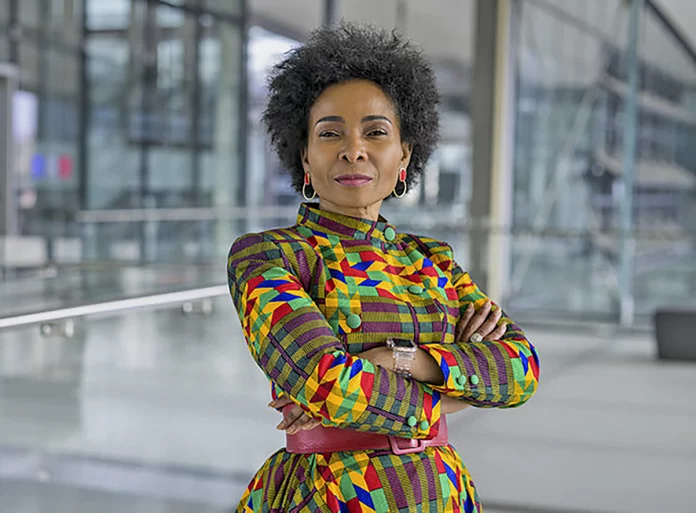The retired judges who will likely determine the future of University of Cape Town (UCT) vice-chancellor professor Mamokgethi Phakeng, who is under fire, have been given a task of investigating the reasons behind resignations of senior staff at the university under Phakeng’s tenure, according to the terms of reference Sunday World has seen.
The three-member panel have been given until December 31 to complete its work. The investigation will focus on three areas.
First, a divided UCT council has asked the panel to probe whether Phakeng and council chair Babalwa Ngonyama misled the faculty board, senate and/or council regarding deputy vice-chancellor (DVC) for teaching and learning Lis Lange’s availability for second term and the reasons she did not pursue it.
Second, the panel will “investigate all matters related to executive relationships, including the number of, and reasons for resignations within and beyond the executive, with due consideration of reasons for this”.
And third, the judges have been asked to speak to current or departed staff and members of council on whether “they have signed a non-disclosure agreement or not, from which they are considered released insofar as this is legally feasible”.
The names of the three judges have not been made public.
In May, UCT announced that Lange had quit as head of teaching and learning with immediate effect. In a May 2 statement, Phakeng said Lange would not seek the renewal of her contract, which was scheduled to end in January 2023.
“It has been agreed that she will relinquish her DVC position with immediate effect and that, for the next two months, she will focus on preparing UCT for the Council on Higher Education’s institutional audit, which is scheduled for later this year,” Phakeng said in a statement at the time.
However, Lange is said to have disputed the reasons put forward by Phakeng for her resignation and blamed her and Ngonyama for her exit. Lange then dispatched a letter to the university’s senate stating her “real reasons” for her resignation.
Sunday World understands that Lange’s resignation became a sore point at a senate meeting held at the end of June, the first such meeting since the university announced Lange’s resignation.
It was at the June senate meeting that Ngonyama, in her absence, came under fire for Lange’s resignation. That meeting was chaired by Professor Sue Harrison, deputy vice-chancellor for research and internationalisation at UCT.
Ngonyama told a fiery council meeting in October that less than two hours before the June senate meeting took place, she had received a letter from Harrison informing her that she had received a note from Lange detailing the “real” reasons for her resignation.
Lange’s letter blamed Ngonyama and Phakeng for her resignation.
Ngonyama said that Harrison had informed her that she would not introduce Lange’s letter into the senate agenda as it had been received late. However, Ngonyama said despite Harrison’s earlier assurance that she would not introduce the letter at the senate meeting, it was nevertheless tabled and discussed.
The tabling of the letter saw a floodgate of attacks open against Ngonyama, who was called a liar.
“The acting chair [Harrison] did not condemn or sanction this language; this attack was directed to the chair of council. I do not mind when being attacked as Babalwa Ngonyama, in my personal capacity, however, not when I am discharging my responsibilities as chair of council,” Ngonyama told the council meeting, according to notes leaked to Sunday World by a council member sympathetic to Ngonyama and Phakeng.
The terms of reference of the probe seem to put Phakeng’s tenure as vic-chancellor under the microscope.
“The University of Cape Town shall make available to the panel, via the chief operating officer, the list of all senior staff who have departed the university since 1 January 2018 and, via the registrar, the list of members of the previous and current council 2016-2022.”
Phakeng was first appointed as vice-chancellor in July 2018. She was re-appointed to the role with the backing of 78% of senate members eight months ago. Ngonyama previously told council that Phakeng’s re-appointment was not well-received by Lange, who had allegedly raised her hand for the position.
A council member sympathetic to Phakeng said the terms of refence were meant to disadvantage her.
“These terms of reference are a product of a faction hellbent on getting rid of Phakeng at all cost. They were produced in a dark corner somewhere with a predetermined outcome in mind,” the source said.
The terms of refence also open the door for the damning 2020 UCT Ombud report to be considered.
“In 2020, then UCT ombud Zetu Makamandela-Mguqulwa released a damning report into Phakeng’s leadership style.
“During this reporting period [2019/2020], a number of work-related complaints came to me about professional interactions with the VC [vice-chancellor] where people felt bullied, silenced, undermined, rebuked and/or treated unfairly.
“Their pain was visible. Some affected bystanders also came to express fear and told me how they were impacted individually by different incidents,” Makamandela-Mguqulwa wrote in the foreword of the annual report.
The deputy of UCT council Pheladi Gwangwa is said to have told a heated special council meeting which ended in the wee hours of Tuesday that Phakeng has been under sustained attacks since July 2020, in reference to Makamandela-Mguqulwa’s report.
The story will be updated when UCT responds
Follow @SundayWorldZA on Twitter and @sundayworldza on Instagram, or like our Facebook Page, Sunday World, by clicking here for the latest breaking news in South Africa. To Subscribe to Sunday World, click here



